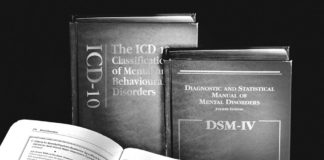Tag: critique of DSM
Is Madness an Evolved Signal? Justin Garson on Strategy Versus Dysfunction
Philosopher Justin Garson discusses the potential benefit of looking at madness not as disease or defect, but as a designed feature.
The Bipolar Rollercoaster: Looking Beyond the Labels
Removing assumptions evoked by my family member’s diagnoses has transformed my understanding of their experience and increased my ability to arrive at solutions applicable to their expressed needs.
The DSM Files: Investigating the Incoherence of Psychiatry’s Bible
A critical view of the way the DSM categorizes internal suffering and makes sense (or sometimes nonsense) of it—full of inconsistencies and bad logic.
DSM Led Us Far Astray. Life Story Is the Path to...
When the DSM-5 came out six years after the study was published, it ignored the evidence that psychological injuries caused 88% of “depression” in adulthood. It wasn't just this study that was sidelined. All the research that linked childhood trauma to later episodes of “depression” was ignored as well.
Creating “Mental Illness” – An Interview with Christopher Lane
The story behind how the ICD and the DSM came to include certain mental disorder descriptions is a fascinating one. Christopher Lane, a 2005 Guggenheim Fellow, wrote about these seminal events in Shyness: How Normal Behavior Became a Sickness. We discuss what led him to write this book a decade ago, and why the questions he posed are still relevant today.
Dr. Lucy Johnstone: The Power Threat Meaning Framework
An interview with Dr. Lucy Johnstone about the new Power Threat Meaning Framework, an ambitious attempt to outline a conceptual alternative to psychiatric diagnosis which was published on January 12th this year by the Division of Clinical Psychology of the British Psychological Society.
Psychosocial Adversities Should be Included in Diagnosis
Proposal to include psychosocial adversities that impact mental health in ICD and DSM diagnoses.
Professionals Push Back on Psychiatric Diagnostic Manual, Propose Alternatives
Criticisms of the DSM-5 spark alternative proposals and calls to reform diagnostic systems in the mental health field.
















